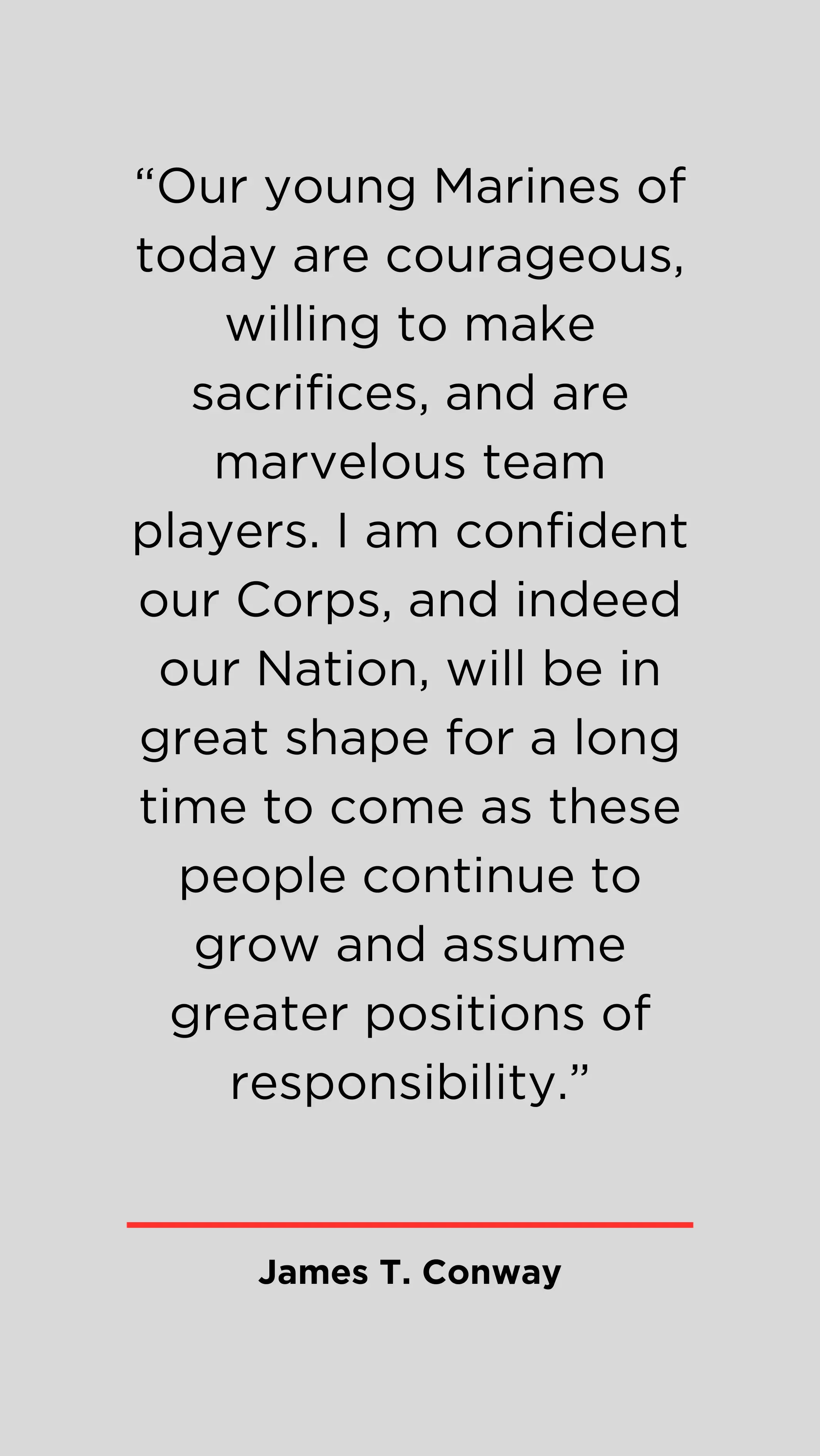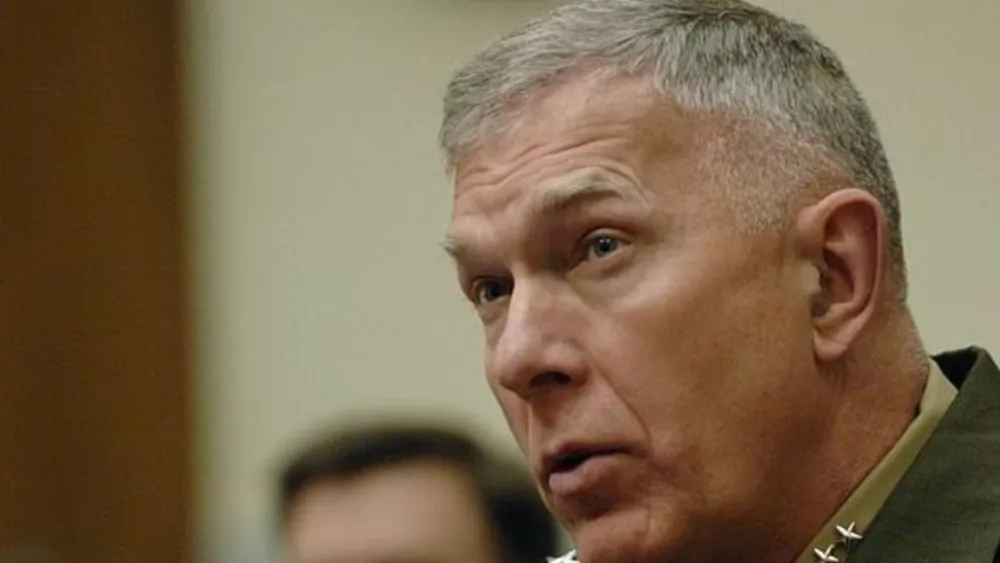Born on December 26, 1947, James T Conway is a retired four-star general from the United States Marine Corps. Notably, he held the prestigious position of the 34th Commandant of the Marine Corps. Furthermore, his extensive service history includes crucial roles such as Director of Operations (J-3) on the Joint Chiefs of Staff. Additionally, a commanding General of the 1st Marine Division and I Marine Expeditionary Force. In 2003, he played a significant role in the invasion of Iraq and the First Battle of Fallujah, showcasing his strong leadership and dedication to the nation.
Roots of Leadership in Walnut Ridge, Arkansas
Growing up in the heartland of Arkansas, General Conway’s formative years were steeped in the values of hard work and a sense of duty. These principles, instilled in him from a young age, laid the bedrock for his extraordinary military career.
His educational pursuits took him to the University of Mississippi. In 1969, he proudly earned his Bachelor of Arts in History, which laid the academic groundwork for a lifetime of service.
In 1975, Conway pursued a master’s degree in International Affairs from the School of International and Public Affairs at Columbia University. This decision prepared him for the complex and diverse challenges he would face as a Marine Corps officer.
A strong educational foundation and values nurtured in his early years laid the groundwork for General James T. Conway’s remarkable leadership in the United States Marine Corps. From this crucible, he would emerge as an exceptional leader, marked by a profound sense of duty and strategic brilliance.
His journey from the heart of America to the hallowed halls of military leadership is a testament to the power of education, hard work, and dedication.
General James T. Conway and His Military Journey
A consistent pattern of excellence and leadership marked General Conway’s illustrious military career. After being commissioned as a second lieutenant in the Marine Corps in 1970, he took on a remarkable journey characterized by exceptional service to his country.
Over the years, Conway’s contributions to the Marine Corps spanned various roles in command and staff positions. His experiences included deployments to Vietnam and the Persian Gulf during Operation Desert Storm, where his leadership and courage shone brightly.
This was a pivotal moment, as it showcased his no-nonsense leadership style and a profound commitment to the welfare of his Marines. Under his guidance, the 1st Marine Division played an indispensable role in the initial invasion of Iraq in 2003. It is a testament to Conway’s strategic insight and the determination of the Marines under his command.
These experiences and accomplishments vividly depict a military leader. His career bore the hallmarks of a profound sense of duty and strategic brilliance. It also showcased a strong focus on the welfare of his subordinates.
Conway’s Dedication and Commitment
General James T. Conway’s ascent through the ranks of the Marine Corps is a testament to his dedication to the institution and its core values. Above all, his commitment to principles such as honor, courage, and commitment exemplified the very essence of the USMC.
In 2006, General Conway reached the pinnacle of his distinguished career when he was appointed the 34th Commandant of the Marine Corps. This prestigious position marked a crowning achievement and recognized his exceptional leadership and devotion to the Marine Corps.
As Commandant, he faced a myriad of complex challenges. The burden of multiple deployments during the wars in Iraq and Afghanistan placed immense strain on the Marine Corps. However, Conway’s leadership was untiring. He tirelessly advocated for the welfare of Marines and their families. Furthermore, he recognized their sacrifices on the front lines and their loved ones at home.
Under General Conway’s guidance, the Marine Corps implemented policies and programs designed to enhance the lives of service members. Of course, they didn’t forget to include their families. Also, his tenure as commandant showcased his compassion and dedication to those who wore the uniform.
James T Conway: A Legacy Beyond Service
Upon his retirement in 2010, General James T. Conway left a legacy that continues to resonate within the Marine Corps and the broader military community. His departure marked the end of a remarkable career characterized by dedication to the Marine Corps and the core values it upholds: honor, courage, and commitment.
The impact of General Conway’s leadership and principles of service extended far beyond his active duty years. His enduring legacy serves as a guiding light for current and future Marines, reminding them of the standard of excellence to which they can aspire.
In his post-military life, General Conway remained committed to advocating for the welfare of Veterans and active-duty service members. He actively engaged with organizations dedicated to their well-being and provided his valuable insights and leadership to initiatives that aimed to improve the lives of those who had served.
Without a doubt, this post-retirement further exemplifies Conway’s commitment to the principles that define the Marine Corps.

Drawing Strength from the Past: Conway’s Inspirational Journey
General James T Conway is a name that resonates as a paragon of leadership and devotion to the United States Marine Corps. As a result, his contributions to the Corps have stood the test of time, leaving a lasting legacy deeply embedded in its proud history.
Certainly, his virtues of selfless service continue to serve as a source of inspiration. Marines past and present draw strength and motivation from his journey through the ranks. Furthermore, they were inspired by his time as the 34th Commandant and his commitment to the welfare of those who wear the uniform.
General Conway’s legacy isn’t confined to the pages of history. It is living proof of the enduring spirit of the Marines. Moreover, it is a shining example for all who aspire to embody the dedication and courage that define this heroic leader in the USMC.
So, his influence extends far beyond his years of active service. Proving that the impact of a dedicated leader can span generations and continue to shape the future of the United States Marine Corps.










